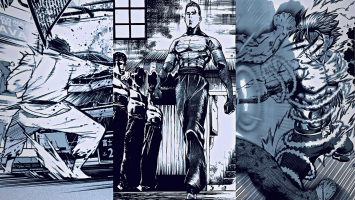Top 10 LGBTQ Writers You Should Read
A writer's gender or sexual orientation is not the central part of who they are as a writer. However, they do carry a stigma, and struggle of any kind ... read more...inevitably affects the way a writer writes - the way they pour their soul out onto the page, or spin a story. Therefore, LGBTQ writers' works always have a somewhat unique and captivating element in them. In this list, we picked out 10 LGBTQ writers you should read.
-
Emily Elizabeth Dickinson (December 10, 1830 – May 15, 1886) was an American poet. She has been regarded as one of the most important figures in American poetry. Dickinson was born into a prominent family with deep links to the community in Amherst, Massachusetts. She spent her early years studying at the Amherst Academy for seven years, then went to the Mount Holyoke Female Seminary for a short time before returning to the Amherst home with her family.
Despite being a prolific author, Dickinson only had 10 of her nearly 1,800 poems and one letter published during her lifetime. The poems that were afterward published were typically heavily modified to adhere to accepted literary conventions. Her poems were exceptional for her time; they had little lines, frequently have no titles, with slant rhyme, unusual capitalization, and punctuation. Her poetry frequently addresses the themes of death and immortality—two subjects that frequently come up in her letters to her friends—as well as aesthetics, society, nature, and spirituality. You can check out "The Poems of Emily Dickinson" - a collection of her poems published in 1955.
Although there isn’t a lot of hard evidence that confirms Dickinson’s sexual orientation, those who study her work believe that several surviving letters written to Susan Gilbert Dickinson may suggest that she wasn’t straight. However, one of the most recent pieces of evidence that point to Dickinson’s apparent queerness is a daguerreotype photo that is believed to feature the poet and a woman named Kate Scott Turner. After the two met and spend some time with each other, Turner moved to Europe and lived as openly gay. This is thought to be the start of the rumors about them, and the discovery of the photo merely appears to confirm their relationship.
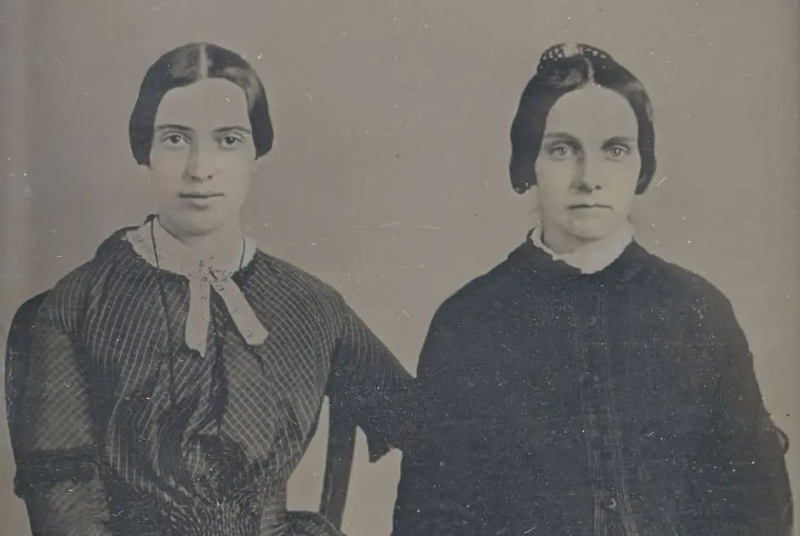
The photo of Emily Dickinson and Kate Scott Turner - nybooks.com Video: Kelly Wolfington -
Oscar Fingal O'Flahertie Wills Wilde (16 October 1854 – 30 November 1900) was one of the most popular playwrights in London in the early 1890s, and also a scandalous figure throughout his whole life. To this day, many people remember him for his works, of course, such as his epigrams, plays, and especially his novel The Picture of Dorian Gray. However, he is also remembered for the circumstances surrounding his early death from meningitis at the age of 46, his imprisonment, and his criminal conviction for gross indecency for consenting to homosexual relations in "one of the earliest celebrity trials."
He experimented with a variety of literary activities while serving as a spokesperson for aestheticism: he published a book of poems, gave lectures on the new "English Renaissance in Art" and interior design in the United States and Canada, and then went back to London where he was a prolific journalist. In the 1890s, he included themes of decadence, deceit, and beauty in The Picture of Dorian Gray, his only novel and also his most famous work. In 1891, he wrote a drama named Salome in French. He also wrote four society comedies in the early 1890s. These works are what made him one of the most successful playwrights of late-Victorian London.
At the height of his fame and success, Wilde was arrested and put through trials for "gross indecency with men", then convicted and sentenced to two years of hard labor, and was jailed from 1895 to 1897. His lengthy letter De Profundis, which explores his spiritual journey through his sufferings and serves as a somber antithesis to his earlier philosophy of pleasure, was written during his final year in prison. After being released from prison, he left immediately for France and never come back to Ireland or Britain. After that, he wrote his final work, The Ballad of Reading Gaol (1898), which was a lengthy poem that reflected on the punishing rhythms of his prison life.
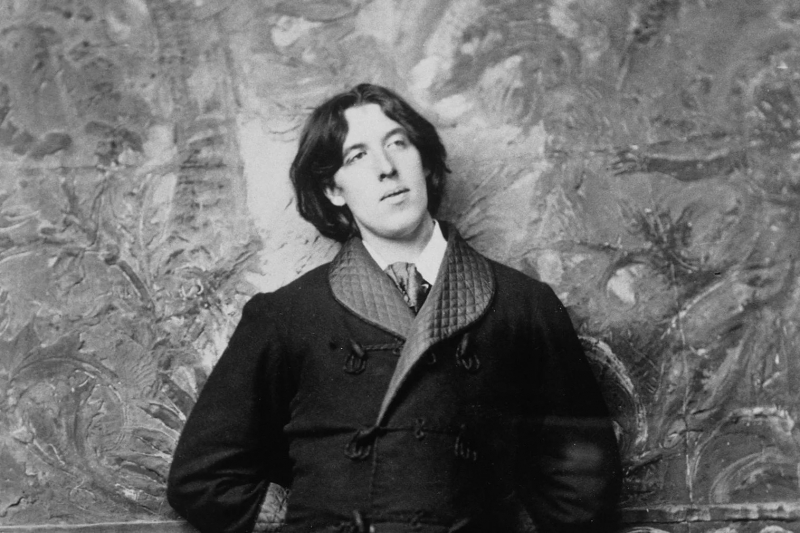
Photo: PinkNews Video: Write Like -
Adeline Virginia Woolf (25 January 1882 – 28 March 1941) was one of the most important modernist 20th-century authors and a pioneer in the use of stream of consciousness as a narrative device. Woolf played a significant role in London's literary and creative community throughout the interwar years. The novels Mrs. Dalloway (1925), To the Lighthouse (1927), and Orlando are among her best-known works (1928). Additionally, she is well recognized for her articles, such as A Room of One's Own (1929). Woolf became one of the central figures in the feminist criticism movement of the 1970s, and since then, her writings have received a great deal of attention and extensive analysis for "inspiring feminism." Her works have been translated into more than 50 languages. The University of London has a building named after Woolf, and there are statues, institutions, and organizations devoted to her work.
Woolf had multiple relationships with women in her personal life, with Vita Sackville-West being the most notable. Vita became one of the only persons in Virginia's adult life to whom she felt truly connected to. The pair remained lovers for a decade and stayed close friends for the rest of Woolf's life. However, she did marry Leonard Woolf, a male, in 1912. Although their sexual relationship was questionable, they built a solid, devoted, and prolific marriage. They were both true in their love and respect for one another but neither was sexually faithful to the other.
Woolf struggled with mental illness her entire life. She made at least two suicide attempts while being institutionalized multiple times. She suffered from symptoms that would now be classified as bipolar disorder, but there was no effective therapy available at the time. Near the age of 59, Woolf committed suicide by drowning herself in the River Ouse at Lewes in 1941.
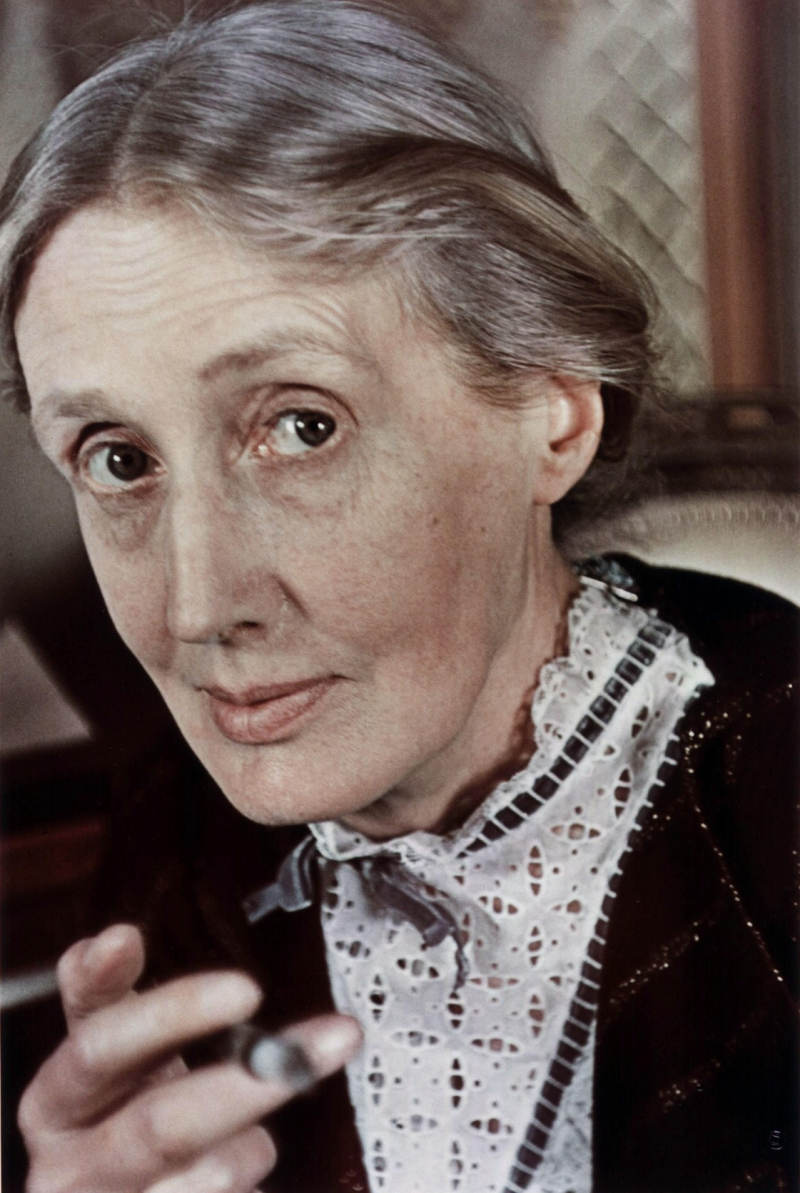
Photo: Art Blart Video: Write Like -
Christopher William Bradshaw Isherwood (26 August 1904 – 4 January 1986) was a multi-talented Anglo-American writer. His novels, memoirs, plays, and diaries span the 20th century, from his modernist beginnings in the late 1920s to his pathbreaking memoirs of the 1970s.
His best-known works include Christopher and His Kind (1976), a memoir that "carried him into the heart of the Gay Liberation movement," Goodbye to Berlin (1939), a semi-autobiographical novel that served as the basis for the musical Cabaret, and A Single Man (1964), which Tom Ford adapted into a film in 2009. The musical Cabaret is exceptionally successful, giving Isherwood credit as a wonderful writer who wrote the book that inspired it. The musical helped Liza Minnelli - the main actress - to win Best Actress and many other Oscars as it ran for over 3 years straight and gain mass public recognition.
Being openly gay and lived true to himself his whole life, Christopher Isherwood is for sure a gay icon by all means. However, he was also one of the first people to one-upped the government to make his same-sex relationship legal - He adopted his long-time partner, Don Bachardy in the late 1970s since Christopher wanted to legally leave Don the house they shared, and the royalties from his works. They were probably the most photographed gay couple in the world in the 1970s, despite their age gap being scandalous to some.
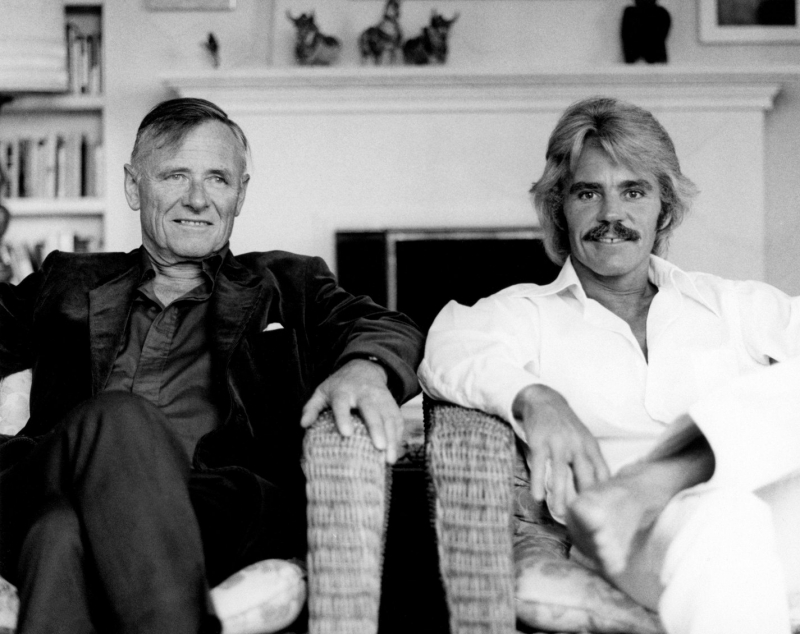
Christopher Isherwood (left) and his partner, Don Bachardy - makinggayhistory.com Video: CUNY TV -
Patricia Highsmith (January 19, 1921 – February 4, 1995) was an American novelist and short story writer. She is famous for her psychological thrillers, including her series of five novels featuring the character Tom Ripley. Throughout her career, Patricia wrote 22 novels and numerous short stories. Her writing challenged ideas of identity and conventional morality, drawing inspiration from existentialist literature. Author Graham Greene named her "the poet of apprehension."
Patricia Highsmith's works have led to many successful film adaptations. Her debut novel, Strangers on a Train, has been adapted for both stage and screen, with Alfred Hitchcock's 1951 film as the most well-known adaptation of the book. Her 1955 novel The Talented Mr. Ripley has been made into numerous motion pictures. Writing under the pen name Claire Morgan, Highsmith published The Price of Salt, the first lesbian novel with a happy ending, in 1952. She later reprinted Carol, under her own name 38 years later. The novel was later adapted into a 2015 film "Carol" and remains one of the best LGBT-themed films of all time.
As an adult, Patricia Highsmith's sexual relationships were predominantly with women. She told writer Marijane Meaker in the late 1950s that she had "tried to like men. I like most men better than I like women, but not in bed", and same-sex relationships have always been a big theme in most of her works. Highsmith was a very private person, yet was loud and frank about her sexuality. "The only thing that separates us from heterosexuals, she told Meaker, is what we do in bed".
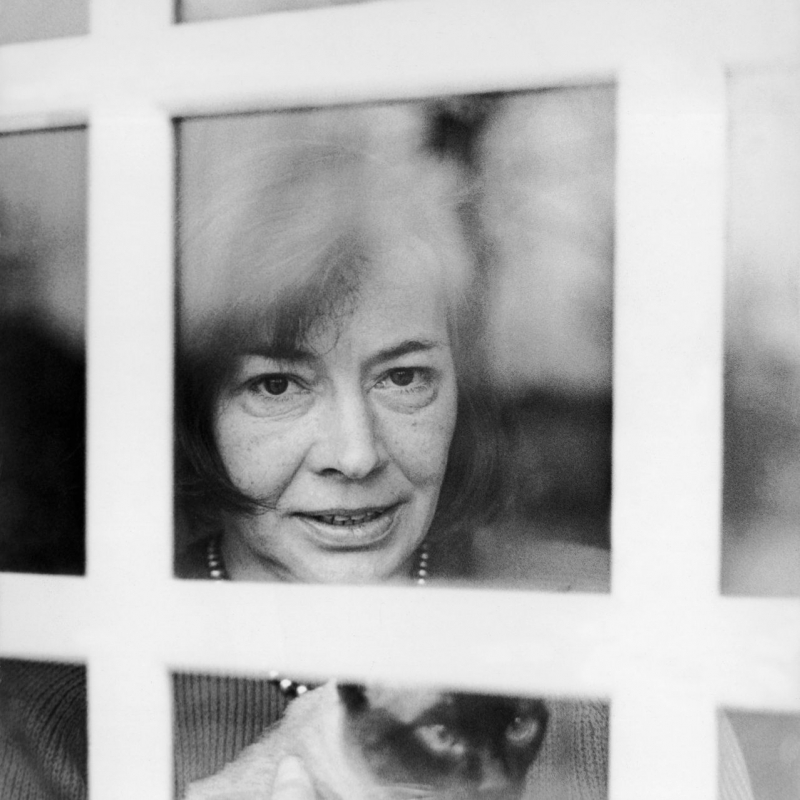
Photo: The Wall Street Journal Video: Carlos Rodero -
James Arthur Baldwin (August 2, 1924 – December 1, 1987) was a well-known African American writer and controversial public figure and orator during the civil rights movement in the United States. He received praise for his writings, books, plays, and poems, among other works. Go Tell It on the Mountain, his debut novel was launched in 1953; This became his biggest work, as years after it was published, Time magazine listed it among the top 100 English-language books produced between 1923 and 2005.
In the midst of complex social and psychological circumstances, Baldwin fictionalizes essential personal issues and questions. Themes of sexuality, race, class, and masculinity intertwine to create complex storylines that reflect some of the most significant political movements for social change in mid-twentieth-century America, such as the gay liberation movement and the civil rights movement. Gay and bisexual males commonly play significant roles in Baldwin's literature, and his characters are typical, though not always, African Americans. In their pursuit of self-acceptance and social acceptability, these characters frequently encounter both internal and external challenges. About love and sexuality, he famously said: "Love... is the only human possibility", and "Love is where you find it." "If you lie about that, you lie about everything."
Since his passing, his legacy has persisted, and his work has been successfully translated for the big screen. In 2018, Barry Jenkins, who also directed and produced the Academy Award-winning film If Beale Street Could Talk, adapted one of his books.
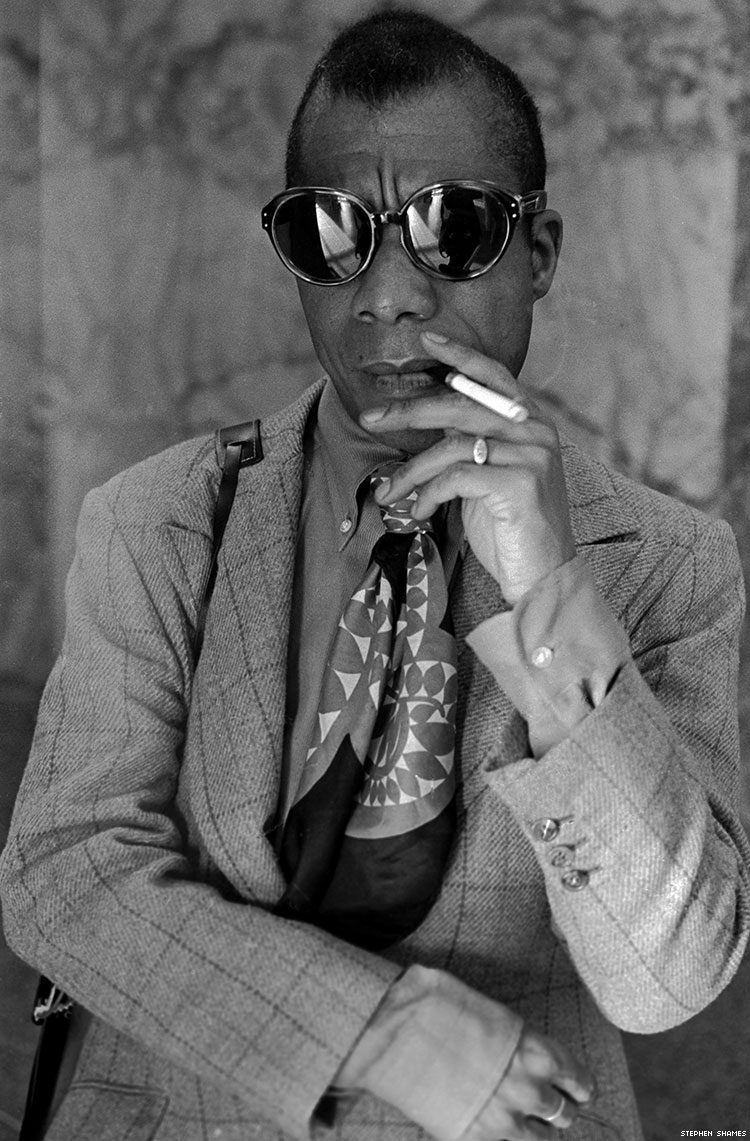
Photo: Out Magazine Video: matt -
Michael Cunningham (born November 6, 1952) is a well-known American novelist and screenwriter. He is also a respected lecturer of creative writing at Yale University. His works received great criticism since the start of his career, as "White Angel" was included in the 1989 Best American Short Stories, and "Mister Brother" was included in the 2000 O. Henry Prize Stories. However, he is best known for his 1998 novel The Hours, which established Cunningham as a major force in the American writing sphere. For The Hours, he was awarded The Pulitzer Prize for Fiction in 1999; The PEN/Faulkner Award in 1999; The Gay, Lesbian, Bisexual, and Transgender Book Award in 1999. And in 1995, Cunningham received the Whiting Award.
After The Hours, his 2010 novel, By Nightfall, was also well received by U.S. critics. And in 2011, Cunningham won the Fernanda Pivano Award for American Literature in Italy. Besides writing, Cunningham also succeeds as a producer. He was a producer for the 2007 film Evening, starring Glenn Close, Toni Collette, and Meryl Streep.
Cunningham lives and works in Manhattan. According to a PlanetOut article, despite being gay and having a long-term domestic partnership with psychotherapist Ken Corbett, Cunningham dislike the label "gay writer." The author does not "want the gay parts of [his] writings to be viewed as their single, dominant trait," despite the fact that he frequently writes about gay characters.

Photo: One Grand Books Video: Karen Shainyan ENG -
Alan James Hollinghurst (born 26 May 1954) is a globally recognized English novelist, poet, short story writer, and translator. Alan Hollinghurst wrote six novels: The Swimming-Pool Library, The Folding Star, The Spell, The Line of Beauty, The Stranger's Child, and most recently The Sparsholt Affair. All of them have received great success despite exploring various facets of British gay life and history. Since 1988, Alan has played a significant role in the canon of British LGBTQ literature. He received the EM Forster Award, a 1989 Somerset Maugham Award, and the James Tait Black Memorial Prize. In 1993, he was named one of the 20 Best of Young British Novelists, and in 1994, he received a Booker Prize nomination.
His most famous work - The Line of Beauty won the 2004 Man Booker Prize and was shortlisted for the 2004 Whitbread Novel Award, as well as many other important awards like the Commonwealth Writers Prize, and America’s National Book Critics Circle Award. The novel was also adapted for BBC2 by Andrew Davies. Alan Hollinghurst himself was nominated for the British Book Awards Author of the Year Prize in the same year.
Hollinghurst is gay and lives in London. Although Hollinghurst now shares a home with his partner Paul Mendez, he previously stated: "I'm not at all easy to live with. I wish I could integrate writing into ordinary social life, but I don't seem to be able to. I could when I started [writing]. I suppose I had more energy then. Now I have to isolate myself for long periods."
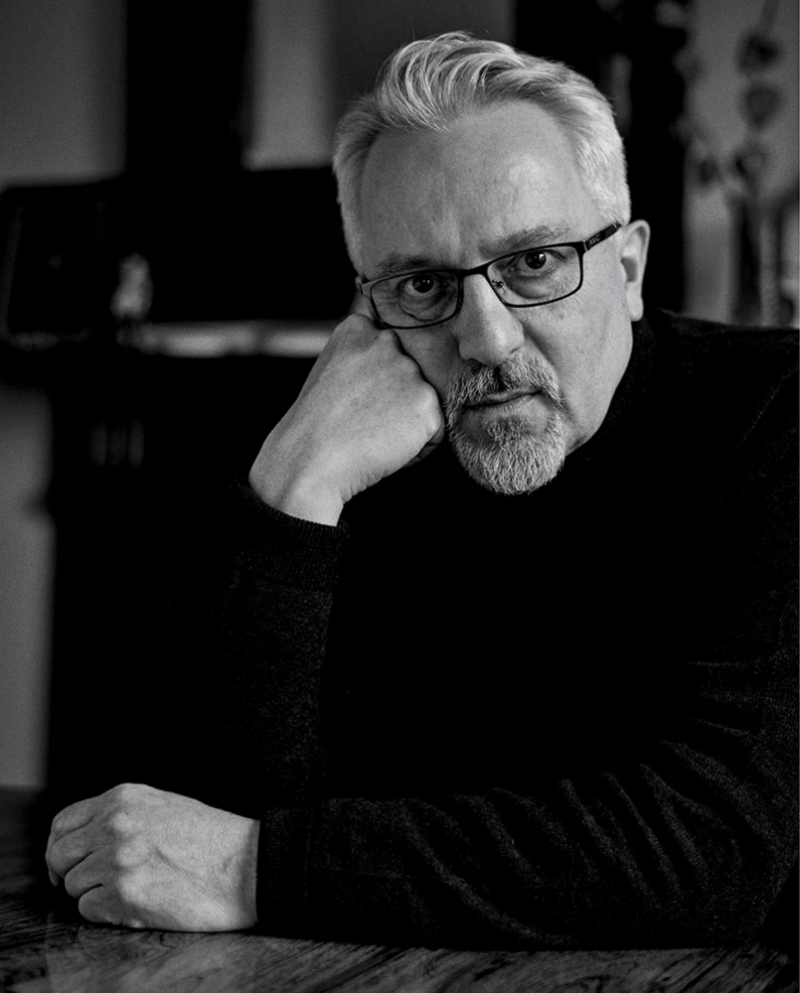
Photo: Interview Magazine Photo: New Writing South -
Luis Negrón (born in 1970) is a Puerto Rican writer. He was born in the city of Guayama, Puerto Rico, and dedicated his life and work to the community there. He studied journalism and has written film reviews for important Puerto Rican publications including Claridad and El Poeta. He has contributed significantly to Puerto Rico's queer arts scene, serving as the organization's first founder and sponsor of cultural and artistic performances for the past ten years, Producciones Mano Santa. He co-edited Los Otros Cuerpos, an anthology of queer writing from Puerto Rico and the Puerto Rican diaspora.
Luis Negrón begin his writing after learning how to write and gaining confidence after he studied journalism. His first collection of short stories, Mundo Cruel, was released in 2010 and has gone through five printings in Spanish. The stories in the book are primarily about LGBT life in Santiago. The book was translated into English by Suzanne Jill Levine, it was then published by Seven Stories Press in 2013 and won the Lambda Literary Award for Gay Fiction at the 26th Lambda Literary Awards in 2014.
Luis Negrón now lives in Santurce, a barrio in San Juan, and works in a bookstore. He is still actively continuing his writing and supporting the LGBTQ+ community in Santurce. Talk about his next work, he said: "I’m working on a short novel using part of my childhood as the main material. It is not an autobiography, because as a storyteller, the joy I find in writing comes from creating. It is not only about growing up gay, it is also about growing up poor and how the struggle to survive in the margins of society can feed the imagination in order to resist."
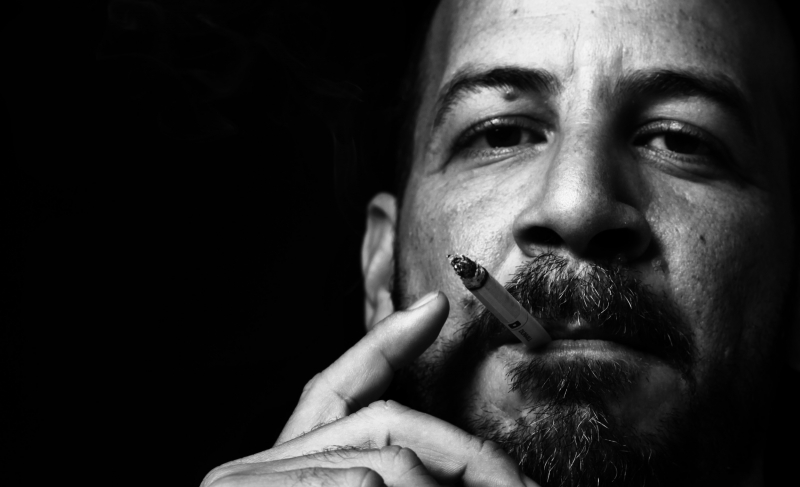
Photo: http://www.indentagency.com/ Video: Stone Center for Latin American Studies -
David Levithan (born September 7, 1972) is an American young adult fiction author and editor. Boy Meets Boy and Naomi and Ely's No Kiss List are two of his many books with strong male LGBT characters. The Lambda Literary Award for Children's and Young Adult Literature has been given to six of Levithan's novels, making him the category's most well-known author.
Film adaptations of three of Levithan's books have been made and gained great success. Nick and Norah's Infinite Playlist, his debut project with Rachel Cohn, was released in 2006 and adapted for the big screen in 2008. Every Day, a romantic fantasy drama was released in 2018 and adapted from Levithan's 2012 novel of the same name. Naomi and Ely's No Kiss List, his second project with Rachel Cohn, was published in 2007 and then adapted into a film in 2015. For 6 of his novels including The Realm of Possibility, Boy Meets Boy, Love Is the Higher Law, How They Met and Other Stories, Wide Awake, and Nick and Norah's Infinite Playlist, Levithan won the Margaret A. Edwards Award in 2016.
In an interview with Barnes & Noble, Levithan claimed that Judith Viorst's Alexander and the Terrible, Horrible, No Good, Very Bad Day taught him how to write stories that were both humorous and sympathetic. He is also looking forward to continuing his editing work, as he said in an interview: "I love editing just as much, if not more than writing".
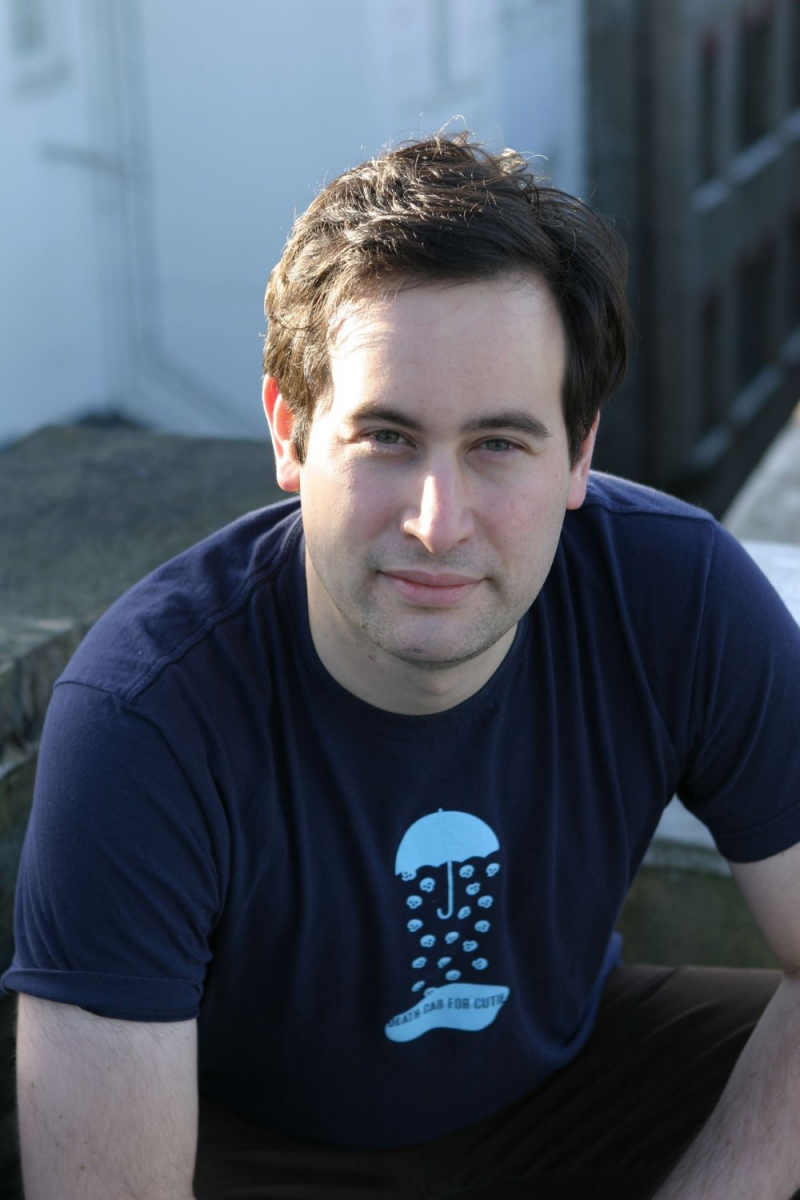
Photo: www.northtexasteenbookfestival.com Video: Penguin Random House





























